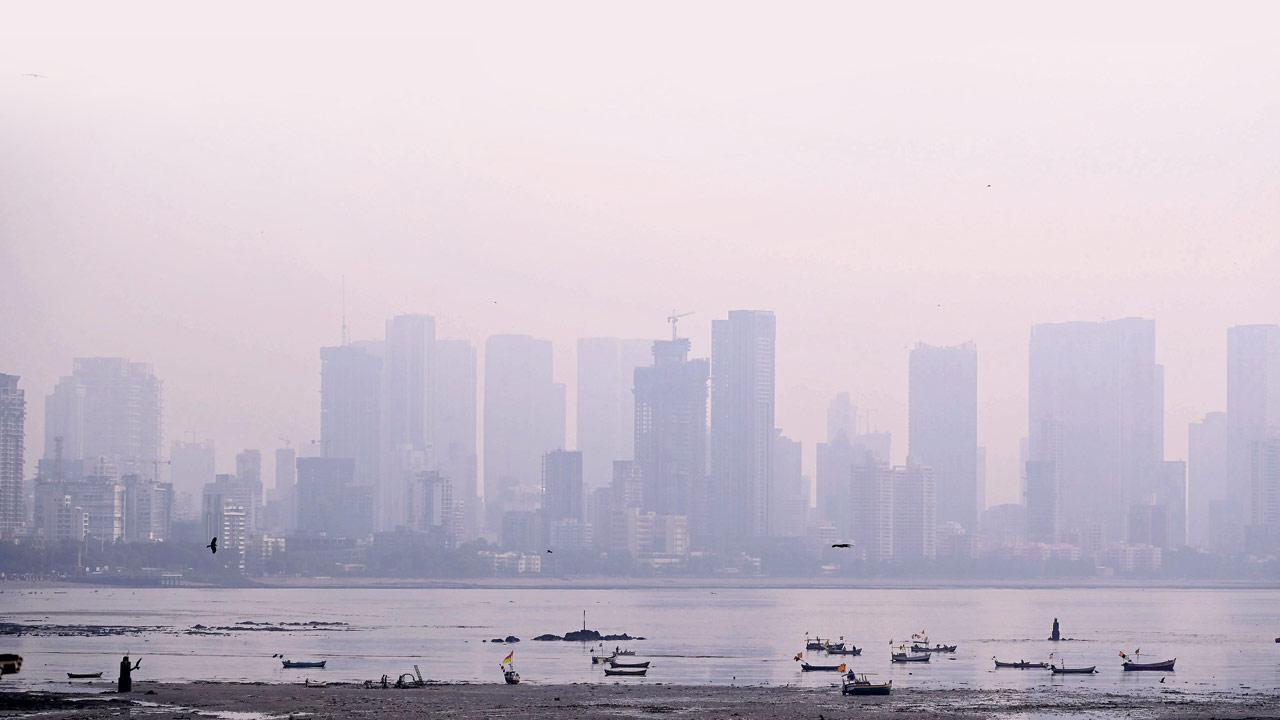As the city transitions into cooler temperatures, and the AQI levels fluctuate, experts suggest how to safeguard your health for the months ahead

According to the Central Pollution Control Board statistics, Mumbai recorded an average AQI of 144 on Tuesday
The city’s cooler months have finally arrived, and as Mumbaikars grapple with lower temperatures, dwindling humidity, and persistent air pollution, many become increasingly vulnerable to a host of health issues. From respiratory problems to skin ailments, the city’s changing climate poses a significant threat to public health. Health experts list out simple, easy-to-follow guidelines on how to brave the winter weather and stay protected.
ADVERTISEMENT
Winter skincare guidebook
“People generally experience dry skin when the humidity levels drop. It is essential that you prioritise moisturising to protect skin barrier,” says Dr Priyanka Ratnapurollu, aesthetic physician at Reaviva Holistic Health, Linking Road, Santacruz West.

Siddhant Bhargava and Priyanka Ratnaporullu
The right way
>> Choose cream or oil-based cleansers that cleanse without stripping moisture.
>> Use a rich, creambased moisturiser which has ceramide, squalane, hyaluronic acid and shea butter to deeply hydrate and restore the skin barrier.
>> Use nourishing serums with antioxidants like Idebenone, Vitamin C and hyaluronic acid to protect your skin against the pollutants.
>> Even in dry, cooler climates, a broad-spectrum SPF is crucial to protect against UV damage. Choose either a SPF 30 or SPF 50 sunscreen, whenever you are stepping out.
>> Use a nourishing lip balm and an eye cream to keep these delicate areas hydrated from dryness.
Avoid these
>> Skip cleansers with strong surfactants like sulphates (e.g. sodium lauryl sulphate) that can strip the skin’s natural oils, leading to dryness and irritation.
>> Avoid scrubbing and exfoliants which have AHA and BHA as they can disturb your skin barrier.
>> Retinoids can dry out the skin further in dry climate. Consider reducing the frequency of use or switching to a milder formula.
Preserve your vitality
The winter months also tend to get tough on respiratory health as pollution levels surge. “During this period people experience symptoms such as irritation, throat pain or sometimes even coughing fits because of thick, dry air with very high levels of pollution. Just making a few changes to your eating and incorporating some physical activity can benefit your lungs,” suggests Dr Siddhant Bhargava, fitness and nutritional scientist and co-founder of Food Darzee.
>> Start incorporating antioxidant-rich fruits and vegetables in your regular diets such as orange, strawberry, and spinach. All these foods have properties that can provide protection against stress posed by pollution.
>> Omega–3 fatty acids found in oily fish or walnuts are also helpful in dealing with inflammation which is good for the lungs.
>> Drink water, herbal tea, or warm broth to avoid soreness of the throat and airways.
>> Check air quality, have air purifiers at home, do indoor exercises, and wear a mask during high pollution days.
 Subscribe today by clicking the link and stay updated with the latest news!" Click here!
Subscribe today by clicking the link and stay updated with the latest news!" Click here!







